68 Lamar St., Suite D, West Babylon, New York 11704
Sat: 11:00 AM - 2:00 PM
Sun: Closed
Kawasaki Ultra 310 Piston Issue
Upgrade Your Kawasaki Ultra 310 with Reliable Forged Pistons
The Kawasaki Ultra 310, an evolution of the renowned Ultra 300, boasts impressive power and reliability. However, a critical upgrade can take your watercraft’s performance to the next level.
The Issue with Ultra 310 Pistons
Kawasaki made a minor modification to the Ultra 310’s pistons, adding an accumulator groove for better ring control. Unfortunately, this design change weakened the pistons, leading to ring land fractures and potential engine damage. The problematic pistons (Part Number: 13001-0755) were in use from 2014 to 2017, but Kawasaki has since replaced them with a stronger design (Part Number: 13001-0787). Now, although the piston isn’t perfect, using the incorrect fuel will certainly lead to this demise. Contrary to what many think, fuel quality is crucial. If you put anything less than 91 octane in your jet ski (and YES that includes Rec 90), you will suffer this disaster guaranteed. If you have no choice, do not run the machine in boost or use the appropriate amount of octane booster. That is without a tune. Once you install a tune, the chances are even greater. An SDM is highly recommended over a tune. So we recommend thinking twice, if you want longevity. Regardless of a tune or not, we recommend 93 octane fuel at all times. Don’t forget about old fuel as well. Anything over 3w will degrade. Either pump it out or use the machine with limited boost.
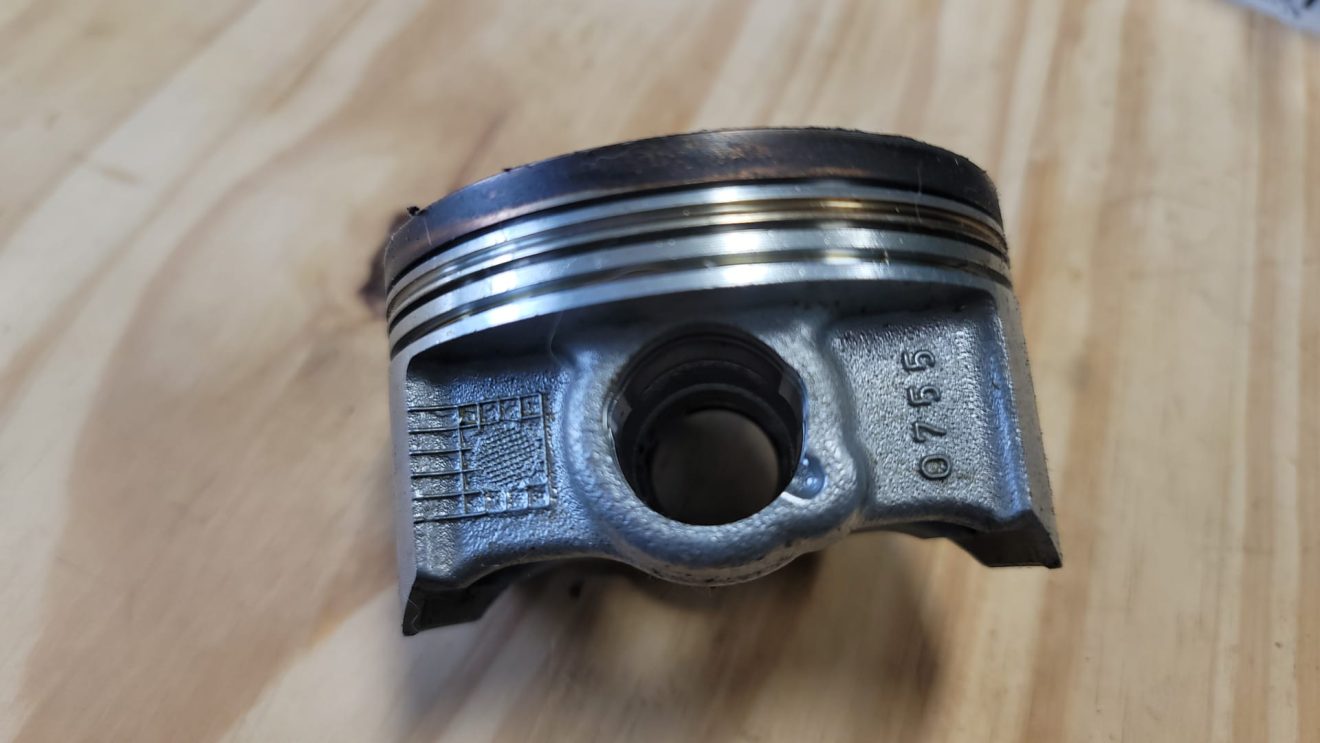
Old style piston that was more prone to failure. The ring lands was much weaker on this piston.
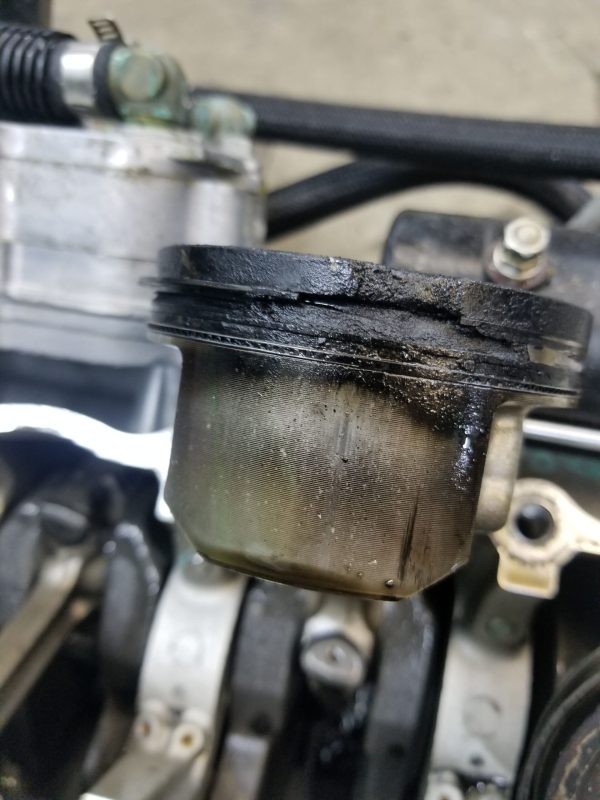
This piston had a complete melt down. This more than likely happened from a lean condition rather than detonation (Or a combination). Which probably took a scoop out of the cylinder as well.
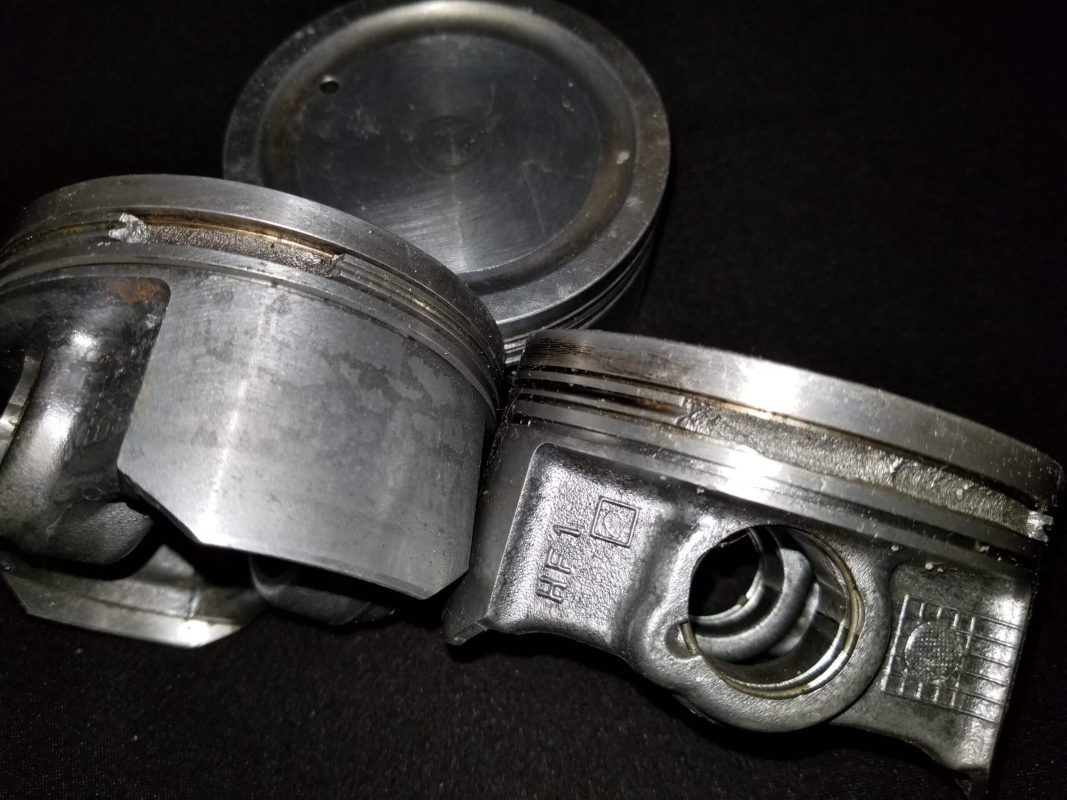
Severe detonation from low octane fuel. Usually you can tell it happened very quickly, by just a clean break. The owner probably pinned the throttle, once high boost kicked it the severe detonation completely caused ring lands fracture. Usually this is followed by oil blowing out of the motor into the hull, or a valve cover gasket pushed out blowing oil out.
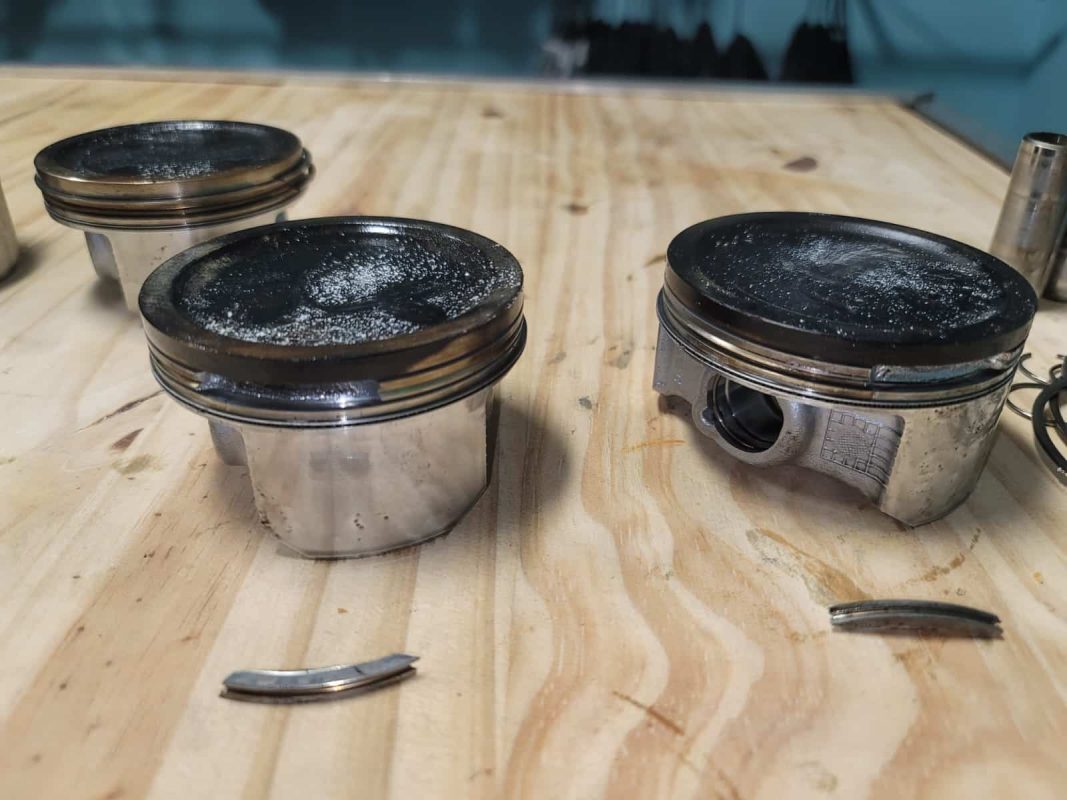
This is the newer style 310 piston, from what we can tell, heavy detonation snapped the ring lands on #1/4 pistons. We can guess it’s from old or lower than 91 octane fuel.
Why Forged Pistons Are the Best Choice
While Kawasaki’s latest pistons are more reliable, they are cast, not forged. In the demanding, supercharged environment of the Ultra 310, forged pistons offer unmatched durability and performance. Here’s why:
- Superior Strength: Forged pistons are significantly stronger and more resistant to fractures.
- Enhanced Longevity: They can withstand higher pressures and temperatures, ensuring your engine runs smoothly for longer.
- Optimal Performance: Upgrade to forged pistons to get the most power out of your 310 by choosing out higher compression drop ins. Or our lower compression drop in for handling additional boost or lower octane fuel/fuel availability issues
Our Recommendation
For the best performance and reliability, we recommend upgrading to forged pistons. If cost is a concern, the newer 0787 pistons are a solid alternative, followed by the original Ultra 300 pistons shown below that have no accumulator groove.
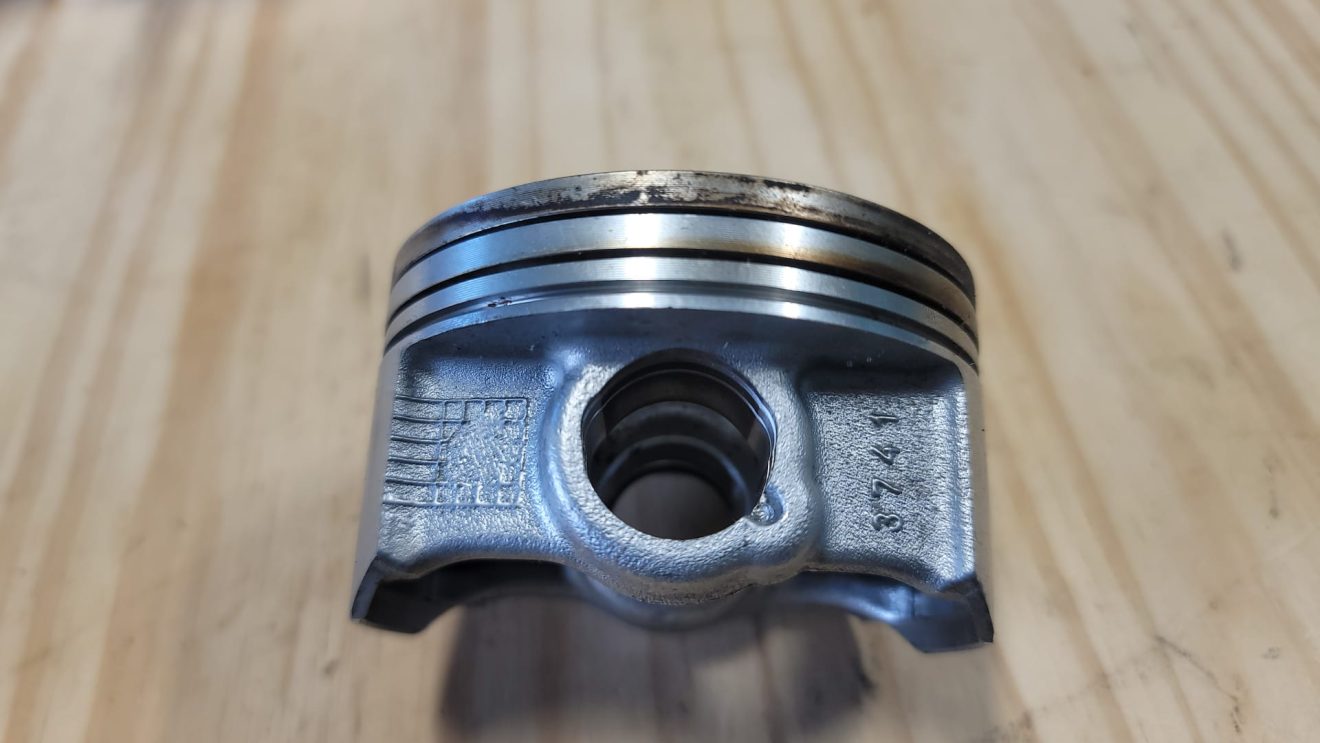
Why Choose Us?
We do not use standard forged pistons. We developed our own after thousands of hours of runtime and engine building, made for us by the leader in the forged pistons world, JE. We also designed and have manufactured our own ring pack, exclusively made for the Kawasaki engine.
For the best performance and reliability, we recommend upgrading to our custom forged pistons. 7.8:1 compression is highly recommended to reduce the chance of detonation. If cost is a concern, the newer 0787 pistons are a solid alternative, followed by the original Ultra 300 pistons.
Upgrade today and experience the difference with our premium forged pistons. Your Kawasaki Ultra 310 deserves the best – and so do you.

